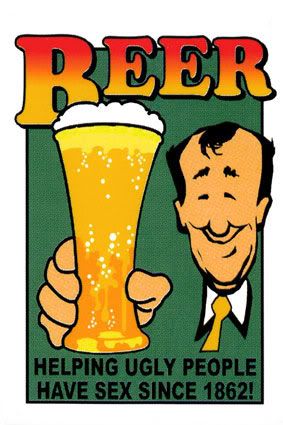
Chris Crocker will reveal just about anything, except where he lives. He has too many haters for that now. Instead, he tells his fans that he's a resident of Real Bitch Island. A girly boy can't be too careful these days. At least, not when he lives in a small town in the rural South and, as Chris likes to remind, has more MySpace friends than Lil' Kim and almost as many as Britney Spears.
Those MySpace friends—Chris prefers the term "fans"—hang on his every MySpace bulletin. They beg for the attentions of the young man with the lilting Southern drawl and the fake eyelashes, declaring their love, their amazement at his boldness, their gratitude. They mimic his online videos: the sex-filled confessions, the wild monologues, and the messages to his generation that have all become viral video hits. They send tons of e-mail, with subject lines such as "OMG!!!OMG!!!OMG!!!" and "You are fucking awesome!!!"
Over on YouTube, where Chris also posts, the total number of views for his videos long ago passed the one million mark. Among the people far away from Real Bitch Island who are tuning in: Cassie, the R&B star, who has a subscription to the Chris Crocker video stream on her YouTube page; Glenn Meehan, a Los Angeles producer who recently inked a deal with Chris to develop ideas for a TV show; and Matt Sunbulli, MTV's "web correspondent," who has requested a Chris Crocker video for the MTV website.
"He's got this incredible energy," Meehan, the L.A. producer, told me. Sunbulli, the MTV correspondent, told me Chris has "virality."
For a 19-year-old who lives with his grandparents and who originally started posting MySpace rants as a way of getting in the face of his small Bible Belt community, the interest from Hollywood and New York is potentially life altering. It offers something Chris has only recently begun to believe is within reach: an escape from the South, an escape made possible by the entertaining distress signals that he's been sending out over the internet for almost a year.
"I don't want it to pass me by," Chris told me a few weeks ago when I visited him on Real Bitch Island. Intrigue had drawn me across the country to see him: I wanted to hang out with the guy behind the viral videos, but more than that, I wanted to find out what life is like for this new type of teenager—a young man connected in ways that let him transform his rural frustrations into national online fame, but who is still painfully disconnected.
To get to Chris, whose real last name and location I had to promise not to disclose, I boarded a nonstop flight to a former Confederate state, then climbed aboard a tiny propeller-powered plane, which took me to a small regional airport. Next came a drive in a rental car to a hotel sandwiched between two rural highways.
The following morning, Chris was sitting in my passenger seat. He was wearing low-rise jeans, a pinstriped velvet blazer, and a white hoodie, beneath which he wore a yellow tank top with "I'm always chasing rainbows" emblazoned on the front. We'd just left the driveway of his grandparents' house, where he'd met me standing near a "God Bless America, United We Stand" sign, installed by his grandfather, a devout Pentecostal who worships at a nearby church. For a young man whose online confidence is a huge part of his allure, Chris, with his worries about being passed by, was sounding, for a brief and uncharacteristic moment, vulnerable—as if all this approaching opportunity were a plane high on the horizon, a groan of engines coming closer to his island, but without a clear commitment to actually pluck him off.
When I first saw them, I didn't interpret Chris's videos as flares sent up by a young gay man marooned in a sea of rednecks. I thought they were something else entirely.
This was back in April. One morning, a couple of my gay friends in Seattle were laughing hysterically, imitating some guy named Chris Crocker and talking about a particular video of his they'd seen on YouTube. The video is Bitch, Please, and it's one of Chris's most popular. Since it was uploaded to YouTube two months ago, it's been viewed nearly 300,000 times; on MySpace, where it's been since December, the number of views is well over 850,000. In the video, Chris, wearing a soft white cotton warm-up jacket over a gray T-shirt, his wide eyes and flared nostrils close to the camera, goes through "the many variations of 'bitch, please'"—offering increasingly angry versions of the phrase, complete with hair flips, bared teeth, and hand gestures—because, as he says at the close of the video in a gentle, instructive voice, the variations "come in handy in many areas of life."
On paper, the segment sounds like just another gay white boy trying to "talk black." But there is something so unselfconscious and nakedly furious about Chris's presentation that it holds you. He is a train wreck of marginal characteristics—effeminate, Southern, flamboyantly gay at a young age, uncensored—and they make it hard to stop watching. The proof of this is not just in the number of times Bitch, Please has been viewed, but in its imitators. On YouTube, people of different ages and races have posted response videos in which they gamely try to do Chris's monologue themselves—the ultimate web compliment. A number of these imitators are black, creating an odd, post-race, parallel YouTube universe in which black imitates gay-white imitating black.
At first, I'd figured this level of border crossing and taboo tweaking had to be emanating from an urban area, from a source steeped in cultural collision and promoting some sort of high-concept agenda. I'd guessed Chris was an art student, young looking but not actually that young, who was lying about his age and living somewhere in Manhattan—a Real Bitch Island if there ever was one. I couldn't quite figure out what to make of the videos that featured Chris's "grandmother" sitting on her worn brown couch in a suburban-looking living room, but, with apologies to his grandmother, I'd guessed she was a drag queen and that a house on Long Island had been borrowed for some shoots.
I wasn't the only one. The Chris Crocker fans I know were divided on their initial guesses about him, and this divide mirrors the divide in experience between gays who had the bad luck to be born in intolerant parts of rural America and those who did not. The gays I know who have never lived in a small, conservative town (people like myself) thought Chris must be an ironic urban art-fag with something to say about the absurdity of fagginess or race relations. Those who have lived in rural America pegged him immediately as a type they know well, or once were themselves—the seething gay kid, trapped in a place that can't tolerate homosexuality and punishes flamboyance. One such friend from a small-minded town told me that if he'd had access to YouTube when he was younger, he could easily have been Chris Crocker.
Which reminds, even though it's becoming increasingly hard to imagine: There was a time, not so long ago, when even Chris Crocker could not have been Chris Crocker—could not have sat in the Bible Belt and downloaded news of the wider, gay-tolerant world and, in response, uploaded his singularly bizarre and angry take on gay life and his intolerant town.
In that time before YouTube and MySpace and internet connections in rural America, this, too, could not have happened: I could not have become one of Chris Crocker's MySpace friends, which I did shortly after watching Bitch, Please. I could not, the next day, have sent Chris a MySpace message in an attempt to figure out who the heck he was. And I could not have learned, heartbreakingly, that Chris is not some art student in Manhattan, as I'd initially guessed—and, I suppose, on some level, hoped—but rather a 19-year-old trapped in a stifling Southern town that he hates, and which seems to hate him.















No comments:
Post a Comment